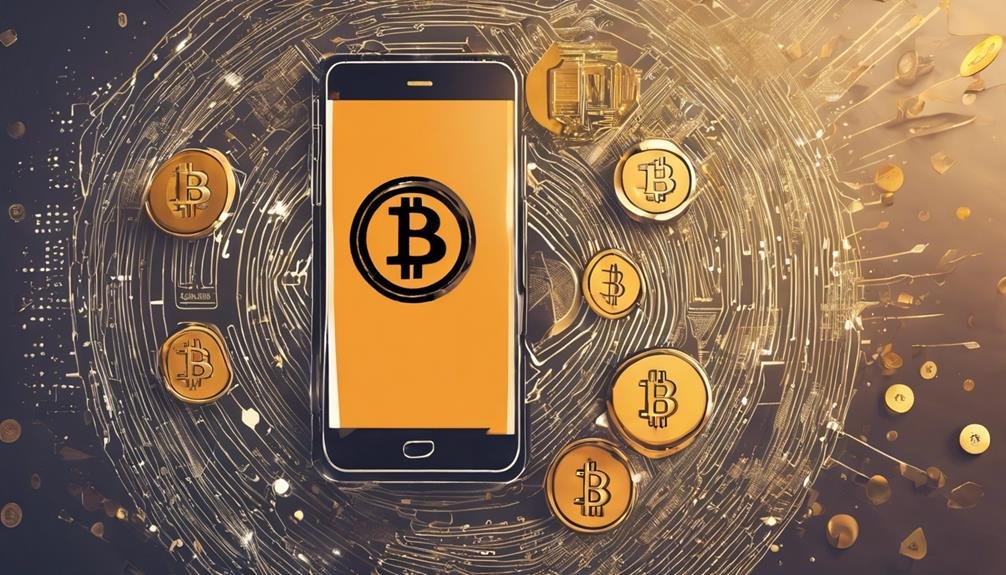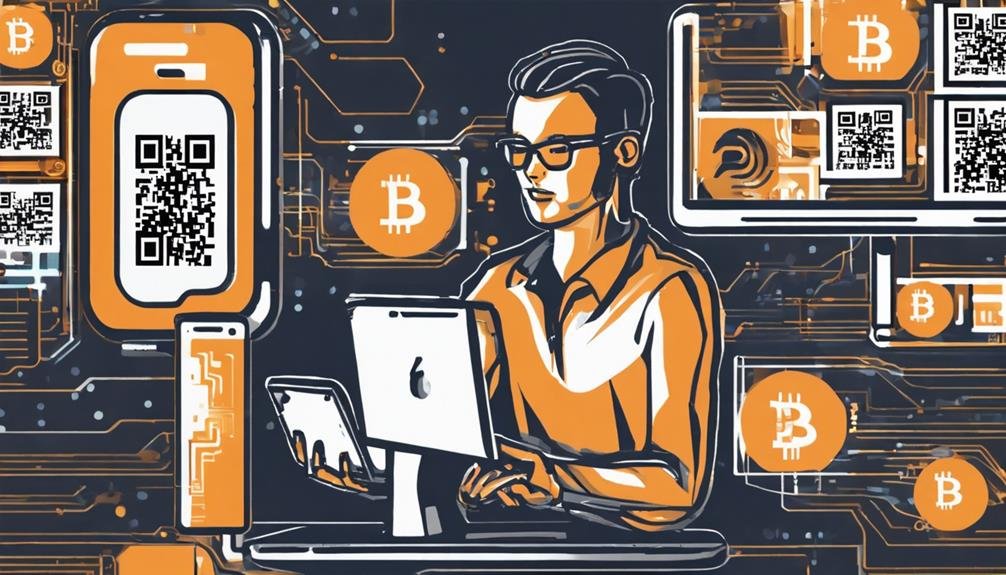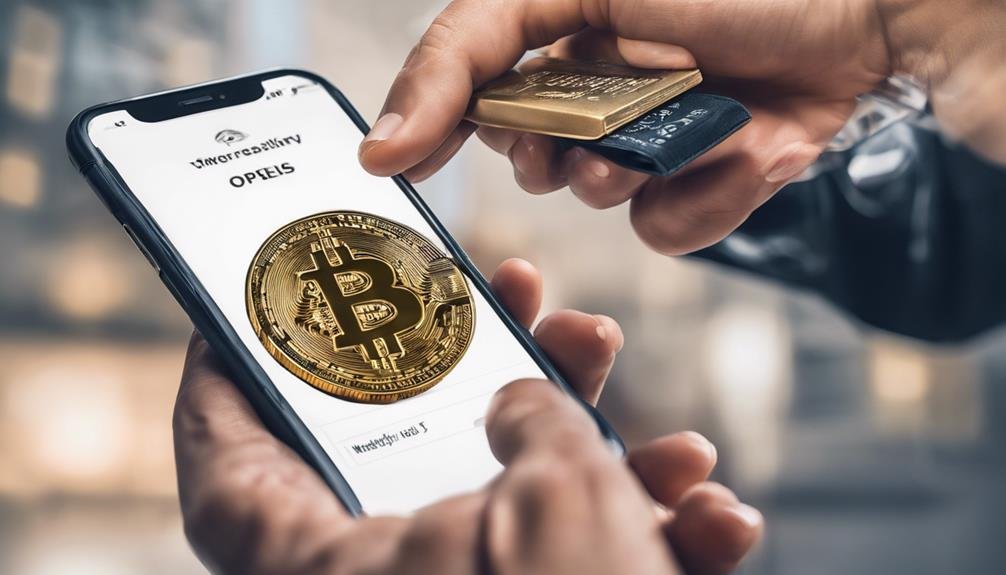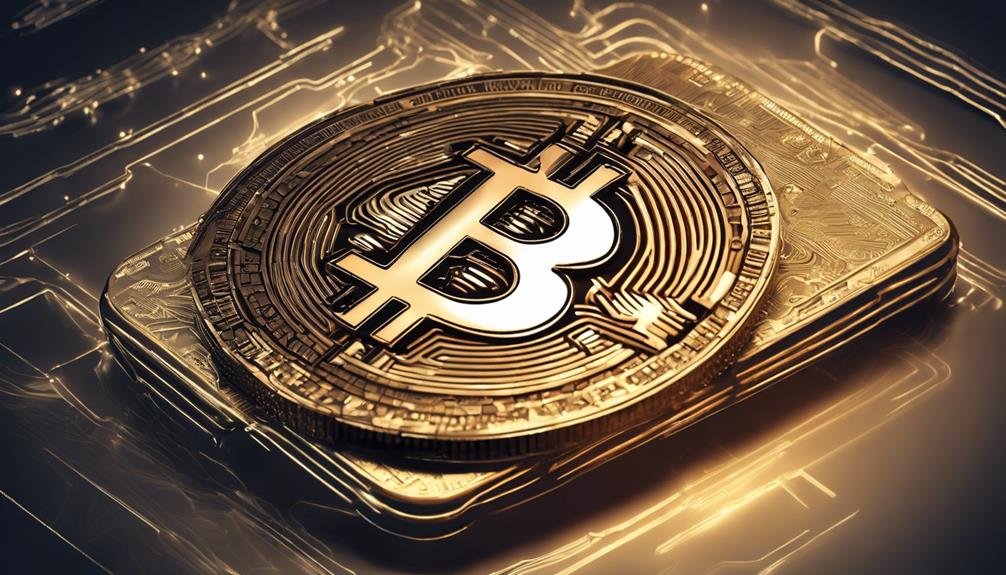You’ve heard about the importance of securing your Bitcoin wallets with Two-Factor Authentication, but do you truly understand the potential risks of not implementing this essential security measure? With the increasing value of cryptocurrencies, the threat of unauthorized access looms more significant than ever. But what steps can you take to guarantee the safety of your digital assets? Let’s explore the intricacies of Two-Factor Authentication and how it can shield your Bitcoin holdings from malicious actors seeking to exploit vulnerabilities in your security protocols.
Table of Contents
Key Takeaways of Two Factor Authentication For Bitcoin Wallets
- Enhances Bitcoin wallet security with an extra layer of protection
- Requires unique code in addition to regular login credentials
- Utilizes reputable authenticator apps like Google Authenticator
- Safeguards against unauthorized access attempts to protect crypto holdings
Importance of Two-Factor Authentication for Bitcoin

Implementing two-factor authentication (2FA) is essential for enhancing the security of Bitcoin wallets and protecting against unauthorized access attempts. 2FA adds an extra layer of security by requiring a unique code and standard login credentials to access the wallet. This code, generated through an Authenticator like Google Authenticator, serves as the second factor in the authentication process, ensuring that only authorized users can access the crypto assets stored in the wallet.
Types of Two-Factor Authentication Methods

To bolster the security of your Bitcoin wallet, familiarize yourself with the various types of two-factor authentication methods available. When setting up two-factor authentication for your crypto wallet, you can choose from SMS codes, mobile authenticator apps like Google Authenticator or Authy, email codes, hardware security tokens, and biometric verification. SMS codes are sent via text message, authenticator apps generate time-based codes, and email codes are delivered to your email for verification.
Hardware tokens offer a physical second layer of security, while biometric verification uses unique biological characteristics for authentication. Some authenticator apps can also be installed on your mobile device to provide extra protection. It is advisable to keep backup codes for your authentication methods to guarantee access to your digital assets in case you lose your primary authentication device. Implementing multi-factor authentication (MFA) is critical to safeguard crypto holdings against unauthorized access and potential cyber threats.
Setting Up 2FA for Bitcoin Wallets

Securing your Bitcoin wallet with two-factor authentication is not as daunting as it may seem. It involves downloading an authenticator app, scanning a QR code, and linking the app to your wallet. To set up 2FA for your Bitcoin wallet, follow these straightforward steps:
- Download the Google Authenticator App: Go to your phone’s app store, search for the Google Authenticator app, and download it. This app will generate the essential codes needed for 2FA.
- Scan the QR Code: Open your Bitcoin wallet settings, look for the 2FA setup option, and scan the QR code displayed on the screen using the Google Authenticator app. This step links the app to your account.
- Store Backup Codes: After setting up 2FA, ensure that the backup codes provided by the wallet are securely stored. These codes are essential in case you lose access to the authenticator app or your phone and prevent potential lockouts from your Bitcoin wallet.
By setting up 2FA, you’re not just adding an extra layer of security to your crypto holdings. You’re also making it significantly harder for unauthorized individuals to access your account. This simple step can ensure the safety of your Bitcoin assets, giving you peace of mind in an increasingly digital world.
Best Practices for 2FA in Bitcoin Security

For enhanced security in managing your Bitcoin holdings, consider incorporating best practices for two-factor authentication (2FA) in your security measures. When setting up 2FA for your Crypto wallets, opt for a reputable authenticator app like Google Authenticator to add an extra layer of security. Utilizing the Google Authenticator App guarantees a robust security layer by generating time-based one-time passwords (TOTPs) only accessible on your device.
Additionally, backup codes can be securely stored offline to prevent lockouts and facilitate emergency account recovery. Regularly reviewing and updating your 2FA security settings should be a top priority to maintain the integrity of your Bitcoin wallets. Enable 2FA on all accounts and devices associated with Bitcoin transactions to establish a thorough multi-factor authentication (MFA) approach.
By being cautious of phishing attempts and only entering 2FA codes on verified websites or platforms, you can notably reduce the risk of unauthorized access to your Bitcoin holdings, enhancing security and user experience.
Addressing Security Concerns With 2FA in Bitcoin

Addressing security concerns with 2FA in Bitcoin is not just a theoretical concept. It involves implementing robust measures that have been proven to safeguard your valuable assets and prevent unauthorized access. An app like Google Authenticator can enhance security by adding an additional layer to the authentication process. When setting up two-factor authentication, scan the QR code provided by your Bitcoin wallet to link it to the Google Authenticator app, generating unique codes at regular intervals. This method employs different authentication factors, making it notably harder for unauthorized access attempts to succeed. In the event of a security breach, having 2FA enabled can help you regain access to your Bitcoin wallet and prevent potential losses. Embrace multi-factor authentication (MFA) to fortify your defenses against malicious actors attempting to infiltrate your digital assets.
Frequently Asked Questions
What Is the Best 2FA Crypto Wallet?
For the best 2FA crypto wallet, consider hardware wallets with multi-signature support for cold storage. Utilize mobile apps with biometric authentication and secure enclaves. Implement paper backups, recovery phrases, and password managers for added security.
How Do I Make My Bitcoin Wallet Secure?
To secure your Bitcoin wallet:
- Use 2FA with a reputable authenticator app.
- Safeguard backup codes and monitor wallet activity.
- Beware of phishing.
Two-factor authentication prevents unauthorized access, adding essential security to your holdings.
What Is 2 Factor Authentication for Bitcoin?
Two-factor verification for Bitcoin, also known as 2FA, provides a secure authentication process using multiple factors. It enhances Bitcoin security with double-layer defense through various authentication methods like authentication apps, SMS codes, and biometric verification for a secure wallet.
What Is the Safest and Most Secure Bitcoin Wallet?
Hardware wallets like Ledger Nano X and Trezor Model T are ideal for the safest and most secure Bitcoin wallet. They offer cold storage, multisig solutions, passphrase protection, and more, ensuring your assets are well-protected.
Conclusion
To sum up, implementing Two-Factor Authentication (2FA) for your Bitcoin wallet is a wise decision to enhance security. Adding this extra layer of protection can significantly reduce the risk of unauthorized access and potential theft. Remember, when safeguarding your digital assets, it’s better to be safe than sorry. So, take the necessary steps to secure your Bitcoin holdings with 2FA and stay one step ahead of cyber threats.



